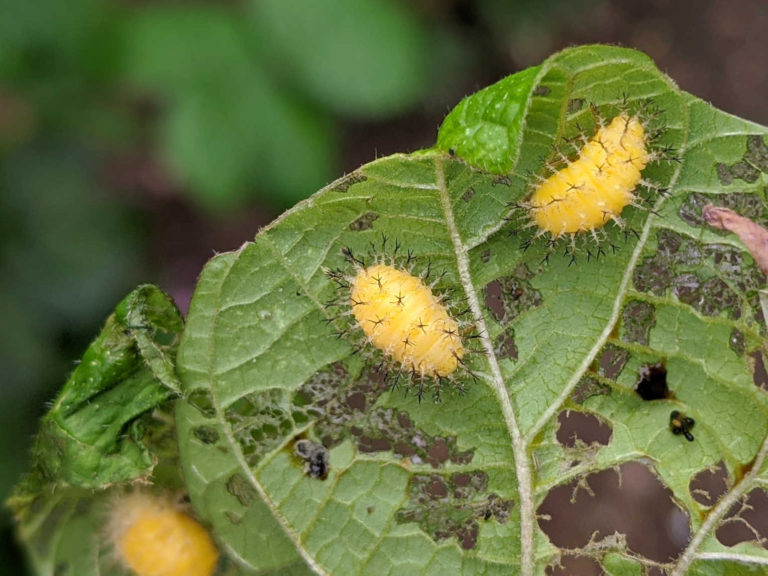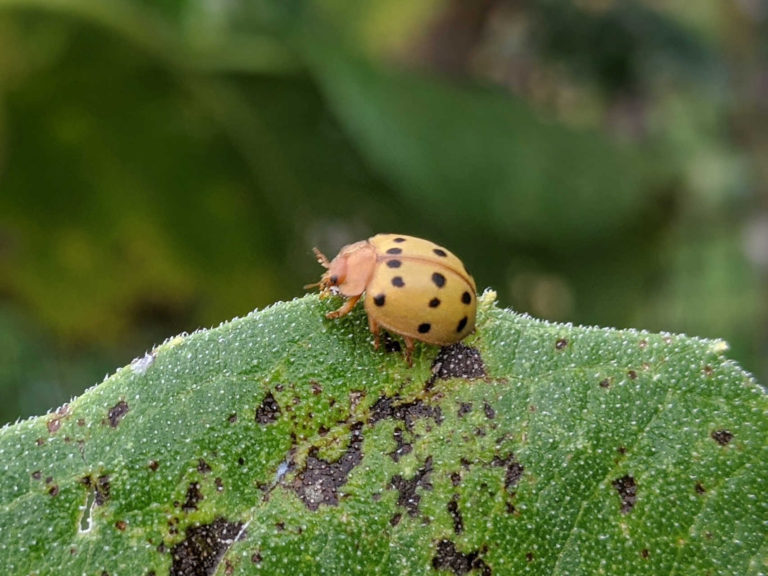Mexican Bean Beetle
Insect Identification
Images
Damage
The Mexican bean beetle is a serious problem in the Rose Tree gardens. The adult beetles are highly mobile and will quickly spread to your plot even if beans have not been grown in your area for years. Your first sign of an infestation is a lacy appearance to the leaves. This damage will quickly spread to the rest of your plant if controls are not implemented. Plants can withstand 20% defoliation before yields are affected.
Affected Plants
Legume family
- Green beans
- Lima beans
- Soybeans
- Cowpeas
Management
The use of insecticides to control Mexican Bean Beetles is usually not necessary due to the ease of physical removal and large numbers of beetles required to cause a loss of yield. Control techniques are listed in order of effectiveness.
Row covers
- These are advised for bush beans and not pole beans due to the difficulty of covering the entire trellis with the row cover.
Physical removal
- Crush the eggs, larvae, and adults by hand starting in early summer. Vigilant monitoring and aggressive control early in the season will significantly reduce their numbers.
- If early-season controls are properly implemented, only periodic monitoring will be required for the remainder of the season.
Insecticides
- Only begin using insecticides if you become overwhelmed with high numbers of beetles and physical removal is no longer practical. All pesticides are most effective on very young larvae and should not be applied on older larvae and adult beetles. Direct insecticide sprays to the underside of the leaves where the insect resides.
Bait Crop
- Sow a group of beans early in the season to be used as a bait crop. As beetles emerge from the ground, they will begin attacking your plants. When they become heavily infested, remove the plants, and seal them in a plastic trash bag. After a week of the bag sitting in the sun, the plants can be composted. Sow your main crop of beans.
Predators
- A parasitic wasp (scientific name Pediobius faveolatus) is available for sale but is prohibitively expensive unless applying it to a large field of beans. Because the wasp is susceptible to the cold winters in Pennsylvania, they have to be released every year.
Further Reading
- University of Florida Extension – Mexican Bean Beetle


